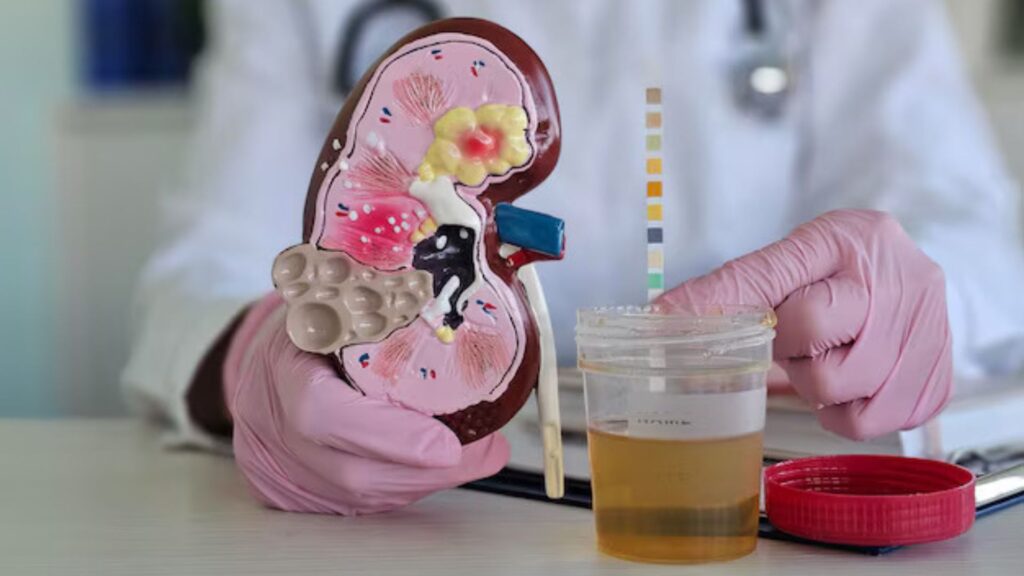Kidney health can’t be avoided because the kidneys are vital organs responsible for numerous essential bodily functions. Their failure leads to severe, life-threatening complications that require intensive medical interventions like dialysis or a transplant for survival.
If you want to avoid heavy bills that can empty your pocket for medicines, procedures, and other medical interventions, then start from today! Look after your kidney health.
This guide discusses 6 steps to protect your kidney health. Do not avoid these 6 steps if you want to avoid long bills.
- Learn About Facts
You must know the basics of kidney function when you know exactly how a healthy kidney works, so that you can detect the issue at the early stage and get the treatment done. So here is how healthy kidneys function:
- Kidneys filter waste products and surplus water from the bloodstream to produce urine, which is then stored in the bladder and eliminated from the body.
- They help balance important minerals like sodium and potassium, as well as other chemicals in the blood, to maintain the body’s proper internal environment.
- They help regulate blood pressure by managing the body’s fluid levels and releasing hormones that affect blood vessel constriction.
- Assess Risk Factors
Assessing kidney health risk factors is crucial for early detection, prevention, and treatment of kidney disease. Early identification allows for interventions like lifestyle changes and medical treatments to slow or stop disease progression, prevent complications such as high blood pressure and cardiovascular disease, and improve overall health outcomes.
Many people have no symptoms until the disease is advanced, so risk factor assessment helps catch problems early when the condition is more treatable. Early intervention can reduce the risk of serious complications, including cardiovascular disease and stroke. Here are the main risk factors that everyone must know:
- Diabetes
- High blood pressure
- Personal history of acute kidney injury
- Obseity
- Family history of chronic kidney disease or kidney failure
- Recognise Symptoms
You may be taking rest properly, but still feeling fatigue or tiredness all day long can be a sign of a kidney health issue. Here are some symptoms that must not be avoided:
- Feeling tired and having low energy can be a sign that waste is building up in the blood.
- Buildup of toxins can lead to feelings of nausea and a metallic taste in the mouth.
- Needing to urinate more often, especially at night.
- Blood in the urine is a serious sign that requires medical attention.
- The kidneys play a key role in regulating blood pressure, so high blood pressure that is hard to control can be a symptom of kidney disease.
- Get a Regular Checkup
Individuals often avoid getting a checkup, which results in long bills because regular checkups can help recognise symptoms early. When the experts detect the symptoms early, they start diagnosis and treatment, which helps reduce complex complications. Kidney diseases often have no symptoms in their early stages, so regular checkups are vital for catching problems before they advance.
High blood pressure and diabetes are major causes of kidney damage; regular tests help monitor how these conditions are affecting the kidneys and allow healthcare professionals to adjust treatments and lifestyle choices to prevent further harm.
Detecting issues early allows for more effective treatment and can prevent the progression to more serious conditions like chronic kidney disease (CKD) or kidney failure.
- Things to Avoid
There can be certain things that might be affecting your kidneys, and you are unaware of them. Here are some things that you need to limit or avoid:
- Limit processed foods, canned soups, salty snacks, and fast food, which can increase blood pressure and fluid retention.
- Avoid processed meats like bacon, sausage, and deli meats, as they are often high in sodium and phosphorus.
- Be mindful of foods like avocados, bananas, and potatoes, especially if you have kidney disease, as high potassium levels can be harmful.
- Caffeine is a diuretic and can lead to dehydration and kidney strain if consumed in excess.
- Check Protein Intake
Limiting protein intake is important for kidney health because excessive protein can increase the workload on the kidneys, accelerate the progression of chronic kidney disease (CKD), and lead to the build-up of waste products. High protein intake can cause hyperfiltration, which strains the kidneys and may lead to damage over time, while limiting protein intake reduces the amount of waste that the kidneys must filter.
This is especially for those individuals who have pre-CKD or a family history of CKD. Consult with your kidney specialist for more details.



